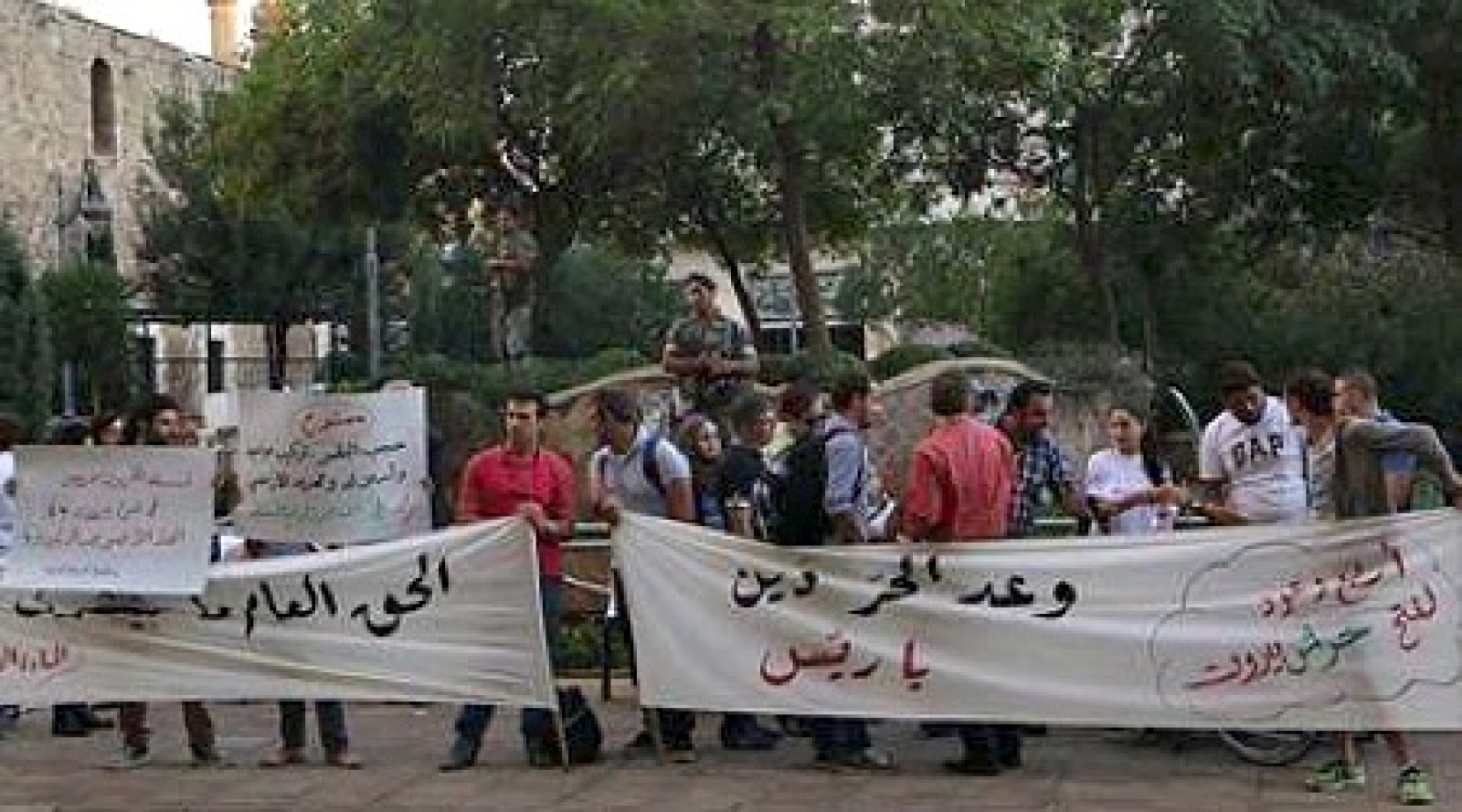
SHARE
Public space – and green space in particular – is a rarity in Beirut, where nearly 50 percent of Lebanon’s population resides. Despite trends toward privatization and overlapping mandates of Beirut’s governor and municipal council, a group of young Lebanese citizens has been advocating for change.
The civic organization NAHNOO (‘We’ in English) was founded on the belief that Lebanese citizens have the right to be treated equally under the law and that Lebanese authorities have a legal and ethical responsibility to provide access to public spaces. In 2012, NAHNOO launched its first public space campaign to reopen Horsh Beirut, the city’s largest green space. The park, which has been closed to the public since 1992, is located in the center of suburban Beirut and encompasses a pine forest. Horsh Beirut is controlled by the capital’s municipality, which has consistently claimed that it has neither the legal nor the administrative resources to open the space to the public.
In 2013, NDI began to support NAHNOO’s efforts under the auspices of its Middle East Peace Initiative (MEPI)-funded “Partnering Project,” which trains civic groups on advocacy skills, including conducting community surveys to gather evidence on issues and using that evidence to inform public engagement tactics like town halls to enhance their broader strategy.
NAHNOO used skills acquired through the Partnering Project to target both the legal and administrative aspects of the re-opening of Horsh Beirut. Through a series of consultations with human rights and land use legal experts, NAHNOO prepared a study, which spelled out legal arguments to open the park, that it presented to members of the municipality in a closed-door council meeting. The initial reaction was not positive – council members discounted the study and noted that even if they have the legal authority to reopen the park, they lack the resources to properly maintain it.
NAHNOO activists were prepared for this response and took to the streets to raise the public profile for their cause.They also called for public debates with municipal officials to discuss Horsh Beirut. Throughout their campaign, NAHNOO not only critiqued the closure, but also presented solutions to help local government reopen the park. This public pressure eventually forced officials to take part in NAHNOO-sponsored townhalls on the issue. At one of these events in February 2015, Ziad Chebib, Governor of Beirut, publicly committed to reopen the park one day a week, with the condition that civil society take responsibility for administering the park. NAHNOO seized this opportunity,issued a call for volunteers and organized training sessions to orient them on municipal rules for the park.
On a sunny Saturday morning in early September, Horsh Beirut officially reopened, staffed by more than 100 civil society volunteers. Since the park’s reopening three months ago, NAHNOO has continued to partner with Beirut officials on rehabilitation efforts including tree and plant care, the addition of park benches and maintenance for the public restrooms on the premises. NAHNOO is also launching a digital campaign, ‘Our Horsh, Our Stories,’ to document citizens’ experiences at the park, and plans to continue efforts with the Governor’s office to increase transparency about their work.
Based on NAHNOO’s approach to constructive advocacy, NDI invited the group to be a member of consortium of Lebanese civic groups committed to facilitating effective engagement between citizens and elected officials to address community issues. Under the banner of the ‘Partnering Project’ NDI has assisted NAHNOO activists to translate their success in Beirut to other municipalities in capitol’s diverse suburbs. Working alongside other organizations in the north and south of the country, the consortium has helped young citizens do their own research and present proposals to municipal and parliament members. NDI and its partners help these young citizens go beyond discussion and consider how to personally get in involved to influence the change they want to see in Lebanon.



